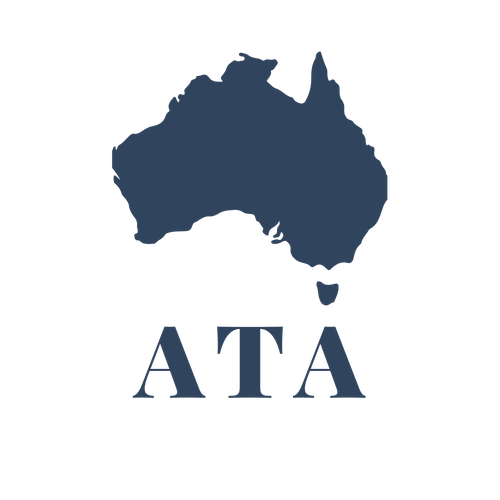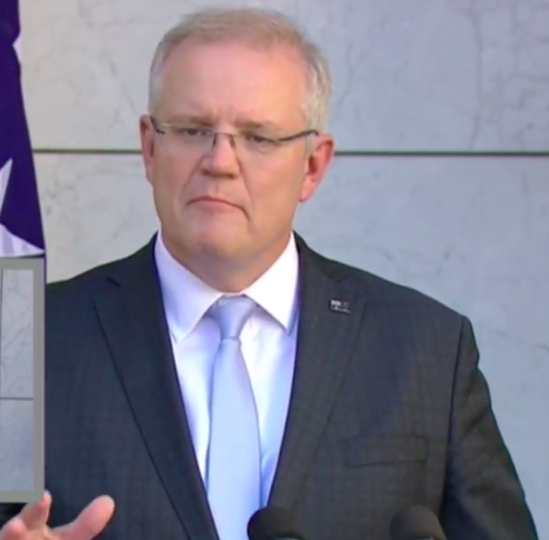ScoMo’s COVID-19 Stimulus Package
★★☆☆☆
★☆☆☆☆
$$$ - 14.1 Billion Dollars
★☆☆☆☆
$$ - 4 Billion Dollars
★★★★☆
$ - 1.2 Billion Dollars
★★★☆☆
$ - 876 Million Dollars
★★★☆☆
$$$$ - 31.9 Billion Dollars
★★★★☆
$$$ - 20 Billion Dollars
★★☆☆☆
$$$$$ - 90 Billion Dollars
★☆☆☆☆
★★★★★
$ - 700 Million Dollars
★☆☆☆☆
$ $- 1.715 Billion Dollars
★★★★★
$ - 1.1 Billion Dollars
★★★☆☆
$$$$ - 130 Billion Dollars
★☆☆☆☆
★★☆☆☆
$$$$$ - 320 Billion Dollars
1. Coronavirus Supplement
The Coronavirus Supplement doubles Newstart payments for job seekers, changing the payout to $1100 a fortnight from $550. Meanwhile at the end of the fiscal year, out-of-work contractors will need to cough up ten of thousands of dollars in tax to pay for this program. This stimulus package should focus more on helping those impacted by the coronavirus slowdown and less on helping people who already have a source of taxpayer funded income. Cost of living hasn’t changed. Even with the alleged 'waiving of regulatory hoops', Services Australia splashed much of the $14.1 billion on hiring 5000 government pencil pushers. Government needs a priority check.
2. Payments to support households
While workers are struggling not to drown during the economic downturn, this policy is gifting $750 to people who don’t work: pensioners, social security recipients, veterans, and concession card holders. Like the Coronavirus Supplement, the people least impacted by lockdowns and closed businesses receive taxpayer funds, while the people who are no longer receiving their paychecks must fend for themselves. Pensioners are by definition over 65 and retired, meaning staying home for a few weeks doesn't impact their lives as much as those who need to go to work to get paid.
3. Early Release of Superannuation
Finally something to celebrate! Contractors and sole traders who have lost at least 20 per cent of their income due to Coronavirus are now eligible to pull up to $10,000 from their superannuation, tax free. This will free up liquidity for the people that need that money most right now. The only fault with this policy is that it should have gone farther. Politicians should make super payments voluntary for contractors, should allow all Australians to pull money from their super at anytime, and remove taxes on super.
4. Reduce Super Minimum Draw down Rates
This policy allows retirees more flexibility in how much they are allowed to withdraw from from their own super. Remember, cost of living for retirees has not changed due to coronavirus, so this policy will have little economic or humanitarian benefit. Regardless, retirees should have the flexibility to use their retirement savings as they choose. We all know they have earned it. If our super really is ours and not a tax we should be able to use it as we choose when we choose.
5. Boosting Cashflow for Employers
Scott Morrison is giving out grants between $20,000 and $100,000 to small and medium sized employers to help them pay their staff through this hard time. Finally a policy funneling money where it is most needed: businesses and non-profits. Boosting cashflow for employers will mean they can keep people employed despite the brutal hit to demand. Unfortunately (but unsurprisingly) less than a quarter of the money allocated for this program is actually going to the businesses. Once again, the rest is hurtling into the dubious blackhole of 'administrative costs'.
6. SME Guarantee Scheme
The SME scheme aims to help small and medium sized employers. The government is backing 50 per cent of loans to employers up to $20 billion. This takes away much of the risk banks face and incentives them to loan out more money. This adds liquidity to the market without overly burdening taxpayers. Because the government isn't guaranteeing 100 per cent of the loans banks still have an incentive to assess risk, so much (not all) of the money the government is risking will be paid back.
7. Quantitative Easing
While Quantitative Easing does put more money into circulation as the government buys out bonds (loans), this was an incredibly expensive policy and the impact on the exchange rate was minimal. We must not forget this slowdown is a health crisis not a monetary crisis. This $90 billion would have been much better spent helping the employers, sole traders, and contractors trying to make it by when they can't open up shop or come into work. People aren’t going to go out and spend money if they cant go out. The people, not the financial system needs support right now.
8. Temporary Relief for financially distressed businesses
This regulation increases the threshold at which creditors can demand a company pay them back. However, policy makers have forgotten creditors are businesses too and they need liquidity now just as much as those owing them. By making it more difficult for lenders to get their money back, policy makers have distinctivised them from issuing loans. This will decrease the amount of money circulating through the economy and will hurt many to help a minority of businesses.
9. Instant asset write off
This is win-win policy. It increases the instant asset write off from $30,000 to $150,000. No only does this put more money in the pockets of employers, it incentivises them to go out and make large purchases to grow their businesses. This then helps other businesses. Lastly, because many offices are transitioning to a work from home format they need to spend money to equip their employees’ workspaces. This make that process much easier.
10. Industry Subsidies
When government picks a winner there is always a loser. Rather squaring-up and implementing the structural reform that would help all businesses, policy-makers are subsidising the industries with the best lobbyists. Yes, the airline industry is struggling, but so is the hospitality industry, the entertainment industry, the beauty industry, etc.. Picking favourites for government bail-outs is not only unfair, but inefficient. Broader reform and cutting red-tape would help more people at less cost to the taxpayers.
11. telehealth, mental health and domestic violence relief package
This is a good policy, delivering relief where it is needed. Quarantine laws have exacerbated the issues of accessibility to health services, mental health and domestic violence. GP Services and Mental Health Services have largely been moved online, and not-for-profits concerning mental health and domestic violence will see a boost in funding. As necessity is the mother of invention, it is clear that this package will actually have positive impacts for long run accessibility to services (especially for cases where physical checkup is not necessary). Keeping Australians safe and healthy is the number one priority, and this package helps do just that.
12. JOBkeeper wage subsidies
The government has pledged to provide wage subsidies for around 6 million workers, lasting 6 months. It entails a $1,500 per fortnight payment for each employee of a business significantly effected by COVID-19. While it is good the government is taking action to keep people employed and receiving their wages, the cost is equivalent to a shocking $10 000 per taxpayer. Additionally, the government’s 6 month commitment to wage subsidies was probably premature, as we don’t know how long it will take to flatten the curve.
13. coronavirus JOBseeker supplement
The government is expanding access to income support payments for 6 months and establishing a Coronavirus Supplement of $550 per fortnight. The partner income test for receiving the payment has been significantly relaxed. The JobSeeker supplement is unnecessary, and costly, forming part of the $130 Billion Dollars pledged to the JobKeeper wage subsidies. Just like the boost to Newstart, this Coronavirus supplement is indicative of the government’s new enthusiasm for redistributionism barely rivalled by the Labor Party. As such, it earns a measly 1 star from us at the ATA.
OVERALL: How does Scomo’s $320 billion stimulus package fair?
Scott Morrison’s $320 billion dollar COVID-19 Stimulus Package is grossly misdirected and a huge waste of taxpayer money. In a time of economic crisis, where workers are losing their livelihoods, and businesses stare into the abyss, the government is spending money on the people, who already have a steady source of income during this downturn. While there are redeeming aspects of the stimulus package, such as the SME scheme and Instant Asset Write Off Policy, ultimately it leaves a bad taste in the mouth of taxpayers.














